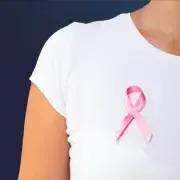Hydration: An Essential Element in Cancer Prevention
In This Article
Hydration: An Essential Element in Cancer Prevention
Pooja
Updated on February 18, 2025
Medically verified by Dr. Pournami
Fact checked by Dr. Arya

Oncology
10 min read
Wondering how and why? You’re in the right place. This blog will explore and explain that.
Each sip of water acts as a source of strength and healing especially for cancer patients.
Let us now deep dive into why hydration is essential in cancer prevention, and give you some practical insights and alternatives ways to stay hydrated.
Benefits of Being Hydrated
- Managing Side-Effects: Cancer has severe side effects, one of the main side effects is dehydration. Dehydration can worsen the condition and amp up the side effects of chemotherapy and radiation therapy as well.
These chemotherapies often lead to nausea, fatigue, diarrhoea, vomiting causing a significant fluid loss. So, proper hydration is necessary and it can improve the symptoms.
- Boosting the Immune System: Dehydration can affect the immune system's function, making it harder for the body to fight infections or recover from surgery. Proper hydration is necessary for enabling immune cells to function efficiently.
- Regulating Organ Function: Dehydration can negatively impact organ function making the kidneys most vulnerable. Kidneys have a great role in the filtration and purification process and dehydration has an effect on kidneys.
- Enhancing Treatment Efficacy: Being hydrated enough can improve the effectiveness of therapies. Cells and tissues are well hydrated and it responds to therapies efficiently and thus guarantees proper results for the treatment.
- Supporting Overall Well-Being: Proper Hydration can help in overall well being. This contributes to the maintenance of energy levels, support of biological processes , prevention of problems etc.
How Can We Stay Hydrated?
- Follow a personalised Hydration Plan: Consulting with your medical professional is necessary for devising a personalised hydration plan. They can consider the aspects like chemotherapy induced nauseas, medications and potential fluid imbalances.
- Consistent Fluid Intake: Rather than taking water in a big amount at a single setting, it is always advisable to take water in a continuous intake.
One way to reduce the fluid loss is to maintain a steady supply of fluids by setting alarms or using mobile applications as reminders.
- Consume foods rich in water content: It is a good decision to incorporate consuming fruits rich in water content to your diet.
Fruits like watermelon , cherries, oranges and vegetables like celery and cucumber can increase our fluid intake. Soups provide a double nutritional and hydration advantage.
- Include Electrolyte: Based on the type of therapy , patients can develop electrolyte deficiencies.
Using electrolyte containing liquids such as coconut water or sports drinks can help optimise hydration and replenish vital minerals.
- Avoid Intake of Caffeine: Consuming Drinks high in caffeine content can cause dehydration.
Symptoms of Dehydration
- Having a swollen tongue or dry throat
- Fatigue, irritable Nature
- Nausea, dizziness
- Having constipation
- Decrease in urination
- Having dry skin
- Losing weight
 5 min
5 minYour Genes And Prostate Cancer Risk: What To Know
 6 min
6 minThe BRCA Genes: Understanding Their Role in Breast and Ovarian Cancer
 10 min read
10 min readGenetic Insights Into Personalised Cancer Treatments
Get a Callback Now
What To Do When You’re Experiencing Mild Dehydration?
- Consider sucking on a popsicle in order to get an instant relief
- If you are having diarrhoea, choose beverages that have sodium and potassium, which is naturally lost through the stool.
- Apply moisturiser to cracked lips and medication to sore mouth , so that there is no difficulty in eating or drinking.
- To avoid an upset stomach, you can consider drinking a small amount.
- Keeping ice and drinks within reach is advisable if you have fatigue, so that there will be no need of getting up more often.
Other Alternatives to Quench Your Thirst
- Broths and Soups: In order to control sodium levels, having soups and broth are good. They provide both hydration and nourishment.
- Herbal Tea: Including teas like chamomile, ginger or green tea in your diet can make you hydrated and at the same time it can calm you and boost your immunity power.
- Fresh Juices: Fresh Fruit juices which have high water content have a good way and it nourishes and hydrates our body well. Some of the choices are oranges and watermelon.
How much Water Intake Is Necessary?
It is advisable to intake at least 8 glasses of water everyday. According to a recent assessment, it was found that 75 % of the US Population was not drinking enough water.
Studies that were conducted to assess hydration and cancer risk found that there was a possible correlation between water intake and development of cancer.
According to a study , there was a significant correlation between colon cancer risk and water intake in men and women of 30-62 years of age.
Colon cancer risk was reduced in women who drank more than 5 glasses a day.
In the case of men, the risk of developing cancer was reduced by 4 or more glasses a day.
Another study found out that Consuming 4 glasses a day can reduce colorectal cancer.
When Should You Consult a Doctor?
Dehydration is a serious concern if we don.t get control. If any of these symptoms bother you , it is advisable to consult a doctor immediately.
- Uncontrollable thirst that doesn't go away even after drinking water
- Confusion or Irritability
- When you can’t sweat or pee
- Fever
- Rapid Heartbeat
- Very Dark Urine
- Low Blood Pressure
FAQ
1.Can we Prevent Cancer by Drinking Water Alone ?
No , Staying Hydrated can help manage the symptoms and help in reducing the risk of developing cancer.
2.How do I keep track of how much fluid I drink?
Finding a reusable water bottle or tumbler with fluid ounce (fl oz) measures marked on the side is an easy way to track fluid intake. One cup is equivalent to 8 fluid ounces.
A glass holding 8 fluid ounces of liquid is roughly the size of a baseball. It may not always be possible to keep track of your exact fluid intake, but you can use this visual signal to estimate it.
3.How Does Water Fight Against Cancer ?
Water is an essential component for cleansing the body and avoiding cancer. This liquid is a fundamental component of your body's cells, delivering nutrients throughout your body.
Water supports the majority of your bodily functions, such as maintaining a healthy body temperature, removing pollutants, and promoting joint health.
Water also helps keep things moving in your digestive tract. It facilitates the passage of food and supports proper digestion.
Water washes toxins out of the body, avoids accumulation, and so protects numerous colon and rectal ailments, including colorectal cancer.
Drinking water and eating more water-rich meals can also assist your body's cells thrive, survive, and reproduce properly.
This can safeguard your body's organs like the intestines, bladder, and breast tissue.
Hydration has a great role in reducing the risk of developing cancer.
Hydration can help in managing the side effects of cancer treatment , It can help in boosting the immune function , Improving the overall well being .
For staying hydrated , one can increase the fluid rich fruits intake and track one’s own water intake.
One can devise a personalised water intake plan.

